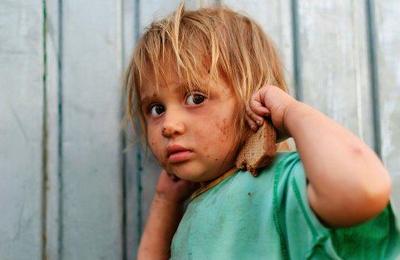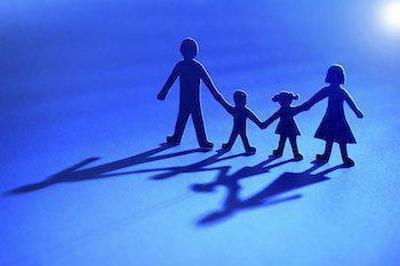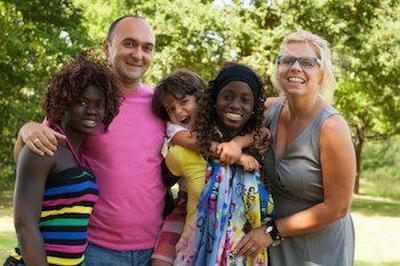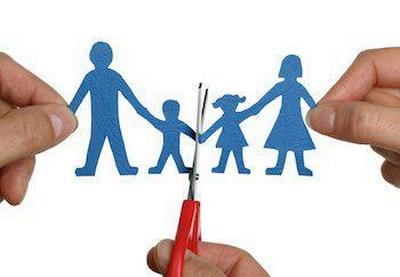Free Initial Consultations
 630-580-6373
630-580-6373With offices in Naperville, Joliet, Wheaton, Plainfield & Chicago
 Child abuse is a heinous and often hidden crime that is difficult to detect and, even when detected, it can be difficult to punish the perpetrators. Once child abuse is suspected, the Illinois Department of Children and Family Services (“DCFS”) has in place an extensive plan to investigate the allegations and concrete measures to take to further protect the child from harm.
Child abuse is a heinous and often hidden crime that is difficult to detect and, even when detected, it can be difficult to punish the perpetrators. Once child abuse is suspected, the Illinois Department of Children and Family Services (“DCFS”) has in place an extensive plan to investigate the allegations and concrete measures to take to further protect the child from harm.
Child Protection often begins with a simple call to the Child Abuse Hotline. A person speaks with a Child Protective Services (“CPS”) worker, who has special knowledge and training on the child abuse laws of the state. If, at the end of the call, the CPS worker determines a formal report needs to be written, a CPS worker will begin a formal investigation. The mandate requires that the investigation begin within 24 hours of the written report.
Once a formal investigation commences, a CPS worker will investigate the allegations, and the child’s immediate needs will be assessed to determine if there is imminent harm to the child. If that is the case, emergency services, such as protective custody, may be implemented right away. The CPS worker will also have influence on the overall determination of what long-term care the child will need once the investigation ends. One major impediment to the process is that of detection. Signs of child abuse can be subtle, or the perpetrator may be taking great lengths to hide the abuse. In some cases, a parent may be in denial or turning a blind eye if outright physical signs are not present. Because of this, the number of people calling into a Child Abuse Hotline may only comprise a small portion of child abuse cases occurring at home. Therefore, additional measures must be put in place to help DCFS detect child abuse as early as possible.Medical Intervention
 On May 22nd 2013, Illinois unanimously passed the Right of First Refusal (“ROFR”) law in both of its Houses of Congress. It was officially implemented as part of the Illinois Marriage and Dissolution of Marriage Act Section 602.3, and went into effect on January 14th, 2014.
On May 22nd 2013, Illinois unanimously passed the Right of First Refusal (“ROFR”) law in both of its Houses of Congress. It was officially implemented as part of the Illinois Marriage and Dissolution of Marriage Act Section 602.3, and went into effect on January 14th, 2014.
The new section provides that “(i)f the court awards joint custody…or visitation rights…the court may consider...whether to award to one or both of the parties the right of first refusal to provide child care for the minor child...during the other parent’s normal parenting time.” The law also stipulates that emergency situations may act as exceptions.
Many new questions will now be raised about what effect this new legislation will have on the relationships of divorced parents. Equally as important, it is not clear what effect it will have on the day-to-day lives of the children of divorced parents. What role a secondary caregiver, like a nanny or babysitter, will play may also be significantly impacted by this new legislation.
 Few legal matters are more sensitive and personal than a divorce. The breakdown of a marriage and the decision to separate is often made after months or years of reflection and personal struggle. Yet, it is important to remember that divorce is a public act. Just as a marriage itself is a public affirmation of a relationship (with attended benefits and obligations under the law), the dissolution of that union requires going to court and having official action taken. As a result, most of the divorce details--at least all items filed with the court--will likely become public record.
Few legal matters are more sensitive and personal than a divorce. The breakdown of a marriage and the decision to separate is often made after months or years of reflection and personal struggle. Yet, it is important to remember that divorce is a public act. Just as a marriage itself is a public affirmation of a relationship (with attended benefits and obligations under the law), the dissolution of that union requires going to court and having official action taken. As a result, most of the divorce details--at least all items filed with the court--will likely become public record.
Divorce records are no different than criminal records, foreclosure proceedings, or any other matter involving the Illinois civil or criminal justice systems. In fact, an Illinois law titled the Marriage, Dissolution, and Invalidity Records Act specifically charges the Illinois Department of Public Health with “registering, indexing, and preserving records” of marriage and dissolution of marriage. The law further charges the department with crafting online and offline systems to manage these records and make it easy for anyone--from journalists to your neighbor--to view those records.
 Following a divorce or separation by parents, a court in Illinois may grant sole physical custody to one party. This parent is usually referred to as the “custodial”parent, and the non-custodial parent will usually still have visitation rights. In most cases children will spend far more time with a custodial parent, and that parent will have more obligations to provide proper care.
Following a divorce or separation by parents, a court in Illinois may grant sole physical custody to one party. This parent is usually referred to as the “custodial”parent, and the non-custodial parent will usually still have visitation rights. In most cases children will spend far more time with a custodial parent, and that parent will have more obligations to provide proper care.
Late last year, an Illinois Appellate Court issued an opinion in the case of In re Marriage of Turk. The case originally involved a court order that required a custodial father to pay the non-custodial mother $600 per month in child support. The court was influenced by the fact that the father earned roughly $150,000 per year while the mother earned $10,000 or less.
 If you are going through a divorce, there is more to consider than the physical separation from your spouse. Especially if you have been married a long time, the division of property can be the most complicated and difficult step of the proceeding. According to the Illinois General Assembly and the state’s Marriage and Dissolution of Marriage Act, Illinois is an equitable distribution state. This means that all property acquired during the marriage will be considered for equitable distribution, regardless of whose name is on the deed. The only possessions that will not be considered for 50/50 distribution upon divorce are those that are categorized as separate property. According to the Huffington Post, separate property generally includes (but is not limited to):
If you are going through a divorce, there is more to consider than the physical separation from your spouse. Especially if you have been married a long time, the division of property can be the most complicated and difficult step of the proceeding. According to the Illinois General Assembly and the state’s Marriage and Dissolution of Marriage Act, Illinois is an equitable distribution state. This means that all property acquired during the marriage will be considered for equitable distribution, regardless of whose name is on the deed. The only possessions that will not be considered for 50/50 distribution upon divorce are those that are categorized as separate property. According to the Huffington Post, separate property generally includes (but is not limited to):
 When going through a divorce, one of the most important things you can do to ensure that the process goes smoothly is to hire the right divorce attorney. At the Davi Law Group, we provide personalized attention to all our clients so that they can begin to move on with their lives. When going through a divorce there are several things to keep in mind in order to stay on top of the proceeding—choosing the right divorce attorney is paramount. “It is difficult to know where to turn when you are faced with divorce,” the Huffington Post reports. There are several things to keep in mind when initiating proceedings, according to the Huffington Post, that will help your divorce go as smoothly as possible. The first is to be realistic. An attorney from the Davi Law Group will help you to dissolve your assets, resolve custody and visitation issues, and determine maintenance / alimony agreements. A divorce attorney is not a therapist or marriage counselor, however. “You need to realize that divorce is a legal process… while you might want [your divorce attorney] to listen to your anger, frustration, pain and sadness, that is not their job,” reports the Huffington Post. At the Davi Law Group we handle your case with sincerity and tact, but we also do our best to keep your costs low by avoiding tasks for which we are not trained. We always work in the vein of what is best for you. Another thing a person can do during a divorce to make it as smooth as possible, according to the Huffington Post, is to stay focused on the goal and to know what you want. An attorney from the Davi Law Group can help you determine how best to proceed, but only you can know your personal goals and desires. If you have determined your desired outcome, an attorney from the Davi Law Group can help to make it happen. If you or someone you know is looking for a divorce attorney in Naperville, contact the Davi Law Group today.
When going through a divorce, one of the most important things you can do to ensure that the process goes smoothly is to hire the right divorce attorney. At the Davi Law Group, we provide personalized attention to all our clients so that they can begin to move on with their lives. When going through a divorce there are several things to keep in mind in order to stay on top of the proceeding—choosing the right divorce attorney is paramount. “It is difficult to know where to turn when you are faced with divorce,” the Huffington Post reports. There are several things to keep in mind when initiating proceedings, according to the Huffington Post, that will help your divorce go as smoothly as possible. The first is to be realistic. An attorney from the Davi Law Group will help you to dissolve your assets, resolve custody and visitation issues, and determine maintenance / alimony agreements. A divorce attorney is not a therapist or marriage counselor, however. “You need to realize that divorce is a legal process… while you might want [your divorce attorney] to listen to your anger, frustration, pain and sadness, that is not their job,” reports the Huffington Post. At the Davi Law Group we handle your case with sincerity and tact, but we also do our best to keep your costs low by avoiding tasks for which we are not trained. We always work in the vein of what is best for you. Another thing a person can do during a divorce to make it as smooth as possible, according to the Huffington Post, is to stay focused on the goal and to know what you want. An attorney from the Davi Law Group can help you determine how best to proceed, but only you can know your personal goals and desires. If you have determined your desired outcome, an attorney from the Davi Law Group can help to make it happen. If you or someone you know is looking for a divorce attorney in Naperville, contact the Davi Law Group today.
For whatever the reason, a few decades ago, you and your spouse turned to the adoption process to firmly plant your family tree. You lovingly declared a life-long commitment to raising your adoptive child and guided them to adulthood. Of course, you made a few mistakes along the way, who hasn’t, but never once did you waiver from your original commitment. So why is your adult child now announcing that they now want to uproot your family tree by branching out to include biological family members?
 Your reaction could go either way. You could be one of the many who feel it is your child's right to proceed or perhaps find yourself a bit resentful and asking why now? How you feel about the situation may not matter. If your family resides in the state of Illinois, requests for information of an adoption is supported under the Illinois Adoption Act (750 ILCS). No matter how you, your spouse or other family members feel about this request, it may be time to contact an experienced Illinois family law practice to fully understand the process as mandated by the Illinois Adoption Act. Before meeting with legal counsel, this synopsis can familiarize you with Illinois statute: Illinois Agencies Involved
Your reaction could go either way. You could be one of the many who feel it is your child's right to proceed or perhaps find yourself a bit resentful and asking why now? How you feel about the situation may not matter. If your family resides in the state of Illinois, requests for information of an adoption is supported under the Illinois Adoption Act (750 ILCS). No matter how you, your spouse or other family members feel about this request, it may be time to contact an experienced Illinois family law practice to fully understand the process as mandated by the Illinois Adoption Act. Before meeting with legal counsel, this synopsis can familiarize you with Illinois statute: Illinois Agencies Involved
Filing for divorce is one of the most stressful events a person can experience. In some cases, ending a marriage can cause psychological damage. Fortunately, there are several things that you can do to make the process easier and healthier for everyone involved.  Many respond to the end of a marriage with grief and anger, or feelings of fear and anxiety. These feelings often catch you off guard. As you proceed through your divorce, it is important to be compassionate and kind to yourself. Try to avoid thinking of your divorce as a battle. Write down details and questions to ask your divorce attorney when you’re calm so that you will remember them later. It may also be helpful to develop a script of sorts for face-to-face communications with your soon-to-be ex-spouse. This can make things easier when you have to meet to discuss details, whether in court, or an alternative dispute resolution meeting. If there are children involved in the relationship, it is important that you do your best to keep conflict away from them. You need to come up with a plan for talking to your children, and talk to them together with spouse. Be honest and open with them in order to keep the lines of communication open, and give them plenty of notice before big changes like moving, or your spouse moving out. Following the divorce, try to minimize large changes for at least a year, and allow them to maintain close contact with their other parent. It is important to remind young children that the divorce is not their fault, and that both parents still love them. Finally, take care of yourself. It can be easy to let your personal needs slide during the stressful time, but it is imperative that you do not do so. If necessary, enlist the help of your family and friends. You may also consider seeing a therapist, or enrolling in a support group. Divorce isn’t something that anyone looks forward to, but it is possible to have a healthy divorce. Contacting a qualified Illinois divorce attorney can help. We can ensure that the process goes as smoothly as possible.
Many respond to the end of a marriage with grief and anger, or feelings of fear and anxiety. These feelings often catch you off guard. As you proceed through your divorce, it is important to be compassionate and kind to yourself. Try to avoid thinking of your divorce as a battle. Write down details and questions to ask your divorce attorney when you’re calm so that you will remember them later. It may also be helpful to develop a script of sorts for face-to-face communications with your soon-to-be ex-spouse. This can make things easier when you have to meet to discuss details, whether in court, or an alternative dispute resolution meeting. If there are children involved in the relationship, it is important that you do your best to keep conflict away from them. You need to come up with a plan for talking to your children, and talk to them together with spouse. Be honest and open with them in order to keep the lines of communication open, and give them plenty of notice before big changes like moving, or your spouse moving out. Following the divorce, try to minimize large changes for at least a year, and allow them to maintain close contact with their other parent. It is important to remind young children that the divorce is not their fault, and that both parents still love them. Finally, take care of yourself. It can be easy to let your personal needs slide during the stressful time, but it is imperative that you do not do so. If necessary, enlist the help of your family and friends. You may also consider seeing a therapist, or enrolling in a support group. Divorce isn’t something that anyone looks forward to, but it is possible to have a healthy divorce. Contacting a qualified Illinois divorce attorney can help. We can ensure that the process goes as smoothly as possible.
